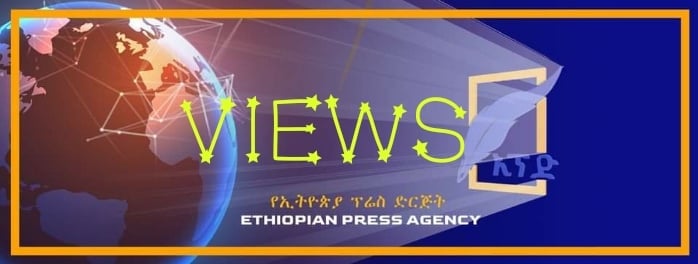
BY GETACHEW MINAS
Illicit financial flows (IFF) have gained grip and traction within the international development community. According to some studies, illicit outflows from Africa, for example, surpass the levels of development aid received by the continent. This act deprives countries the resources needed to fund public services, improve infrastructure and fuel economic growth. There is a deliberate lack of clarity regarding the definition of financial flows, which makes them difficult to delineate, measure and study. However, there is an attempt to provide an overview on the prevalence and manifestations of IFF in and out of Ethiopia by the TPLF and their impact on development. In view of the prevalence of IFF, there is a need for strategies by the government and development partners to address the issue.
IFF was initially associated with the notion of capital flight that captures the cross-border movement of capital associated with illegal activities. It is related to funds crossing borders, which are illegally earned, transferred, and utilized. These flows generally stem from money laundering, bribery by companies, tax evasion and trade mispricing, under or over invoicing by the TPLF functionaries. IFF is often linked to illegal acts such as corruption, tax evasion and criminal activities, smuggling and trafficking in minerals, wildlife, drugs, people, etc. that are widespread by the TPLF. They also include funds obtained through legal activities, but that are then illegally transferred or used for illegal purposes such as financing of organized crime or terrorism. In practice, Ethiopia has lost millions of dollars through IFF that have led to low GDP growth during the rule of the junta.
Ethiopia has responded to curb IFFs, which has been largely based on a “legal” approach, which has proven difficult to implement in practice. An individual may transfer money into private accounts abroad without paying taxes. The OECD has pointed out that this is done with highly complex schemes involving criminal networks that set up multi-layered and multi jurisdictional structures to hide the ownership and origin of the funds. The WB noted that the concept of IFFs is continuously evolving and, as a result, there is still no agreement on a precise definition. Despite definitional and conceptual issues, several international organizations see IFFs as an obstacle to development. The most immediate impact of IFFs is a reduction in both public and private domestic expenditure and investment.
Reducing IFFs has become a central issue in the international development agenda. The UN has committed all nations to “redouble” efforts to substantially reduce and eventually eliminate illicit financial flows. The UN Sustainable Development Goals (SDGs) included the commitment to significantly “reduce” illicit financial and arms flows. It is also committed to strengthen the recovery and return of stolen assets and combat all forms of organized crime. In general, the case against IFFs tends to rest on two main arguments. First, since IFFs are mostly hidden and may come from illegal activities, governments “cannot” tax them. This, in turn, reduces potential government revenues that could be used for the benefit of the overall development of the economy. It also contributes to saving, investment or consumption. Second, since IFFs are taken abroad they cannot benefit the society where they originated from.
Offshore wealth: Estimates of offshore wealth may have been made in some areas. These may include proceeds of crime, stolen assets, mispriced goods, transfer mispricing, and undeclared offshore wealth. There are a few methods that are currently used to estimate some of these components or channels of flows. It seems difficult to provide a global picture of the full scope of IFFs. Data sources are generally not robust enough for measuring changes or determining trends of IFFs. Generally, global estimates indicate that IFFs are substantial and growing. Even though these flows are inherently difficult to measure, there is widespread agreement that the amounts involved are significant (WB). Reports, however, indicate that IFFs remain persistently high and account for about one-fourth of the value of total trade from developing countries. This translates into an estimated total IFFs of trillions of dollars.
Another telling fact is that Official Development Aid (ODA) is low compared to the illicit outflows. Millions of dollars left Ethiopia as IFFs every year. This is estimated to be equivalent to about twenty percent of the country’s total trade. It is also forty to ninety percent of the total aid inflows to the country. It was estimated to be ten to thirty percent of the government’s total revenue. It is estimated that had it not been for capital flight, poverty would have been reduced by immensely in the last decade. Illicit financial flows are, therefore, very damaging to the Ethiopian economy. Lowered revenues of the government and capital flight negatively affect the opportunity for building infrastructure and productive capacity. This reduces investment and employment opportunities in the country.
Over and under invoicing: One of the main sources of IFFs in Ethiopia is trade under-invoicing and over-invoicing. This refers to the intentional misreporting of the value, quantity, or composition of goods on customs declaration forms and invoices. This is usually done for the purpose of evading taxes or laundering money. Some traders can under-report the amount of imports in a transaction to avoid or cheat applicable tariffs and VAT. Similarly, import “over-invoicing” disguises the movement of capital out of a country. All this is done for capital controls. Afirm may be able to subtract that input value from its annual revenue report to the government. This act would lower the amount of taxes a firm owes to the government.
Export “under-invoicing” involves reporting lesser amount of exports to the rest of the world. This is done to evade or avoid taxes on profits made in the country of export. The difference in value is deposited into a foreign bank. Export over-invoicing involves over-stating the amount of exports leaving a country, which often allows the seller to reap extra export credits. Firms or individuals may also use this form of false trade invoicing to “disguise” inflows of capital to avoid capital controls. These firms avoid control of money laundering. The GF reveals that most illicit financial outflows leaving Ethiopia originate from trade “over or under” invoicing.
Importers and investors use over-invoicing to transfer capital illicitly out of the country. Importers use fake contracts that indicate a higher price than the actual price, to get foreign currency from banks. Banks request contracts made between the local importer and the foreign supplier to process foreign currency payments. However, they make very “limited” effort to verify the credibility of the price provided in the contracts. The banks normally approve the foreign currency requests even when they have reasonable doubt that the price of the product or service to be procured abroad is over-invoiced.
Over-invoicing can be used for different reasons, such as avoiding income tax by inflating costs or extracting kickbacks from government procurement contracts. Under-invoicing is a common practice by Ethiopian exporters. Exporters use written contracts and bank payment systems for the sake of documentation and to legalize their business; however, they negotiate with foreign business partners to understate the price in the contracts to be submitted to authorities. The exporters receive the under-invoiced payment through banks and the remainder is paid to them in cash or deposited for them in their name or in the name of other persons in a foreign bank account.
Informal remittance: It is estimated that about three million Ethiopians live abroad and some them remit money back to their country to help their families. The value of remittances has steadily increased. According to the International Organization on Migration (IOM), most of the remittance is sent through informal channels known as hawala. Usually, the informal facilitators collect money from the Ethiopian Diasporas who want to send money to Ethiopia to support their families or to start businesses. The informal facilitators often pay the beneficiaries back home in Ethiopian Birr. They charge in exchange rates that are even higher than the black-market prices. They are attractive for the Ethiopian Diaspora to use their services.
Studies show that the money obtained from informal transactions is used for a number of purposes, including payments to corrupt officials to reduce the risk of being charged for crimes. If caught, they will be charged for acquiring unregistered property under the registration and disclosure proclamation. They may also use informal transaction to acquire property abroad. This is becoming fashionable among the growing number of business and political elite. Due to the informal remittance systems, Ethiopia “loses” access to an important source of foreign currency that it could have gained from its Diaspora. Informal remittances cause damage to the Ethiopian economy as one means of illicitly transfer of resources out of Ethiopia.
Conclusion: The fact that some of the imports are exempted from customs duties as an incentive to attract foreign investment facilitates illicit transfer. Under Ethiopian investment laws, a foreign investor has the right to transfer out of Ethiopia foreign currency from profits and dividends, principal and interests payments for external loans. He/she may handover payments in relation to technology transfer, payments for collaboration agreements, and proceeds from the transfer of shares of an enterprise to a domestic investor. These investors can also transfer proceeds from the sale or liquidation of an enterprise.
Some embassies use diplomatic channels to assist their citizens and companies doing business in Ethiopia to illicitly transfer funds out of the country. The embassies collect Ethiopian currency from their nationals and pay their nationals at home in their home currency. The diplomatic offices also use the local currency to finance their activities in Ethiopia and assist their nationals to transfer funds out of the country. As exposed by Yimer, there are also cases where diplomats with diplomatic immunity who are usually not searched when entering and leaving Ethiopia have been caught carrying foreign currency.
Studies show that the rise in illicit financial flows from Ethiopia was a result of increased corruption, kickbacks, bribery, mispricing, crime, terrorism, tax evasion and various other illegal activities. The government should curb IFFs aiming to address their direct sources by reducing criminal activity, corruption and tax evasion. It should prevent illegal money from leaving the country and stopfinancial intermediaries and other service providers from accepting those assets. To achieve this, the government needs to adopt and enforce policies that promote good governance, tackle corruption, go after dirty money and implement transparent tax systems.
Editor’s Note: The views entertained in this article do not necessarily reflect the stance of The Ethiopian Herald
The Ethiopian Herald September 3/2021





